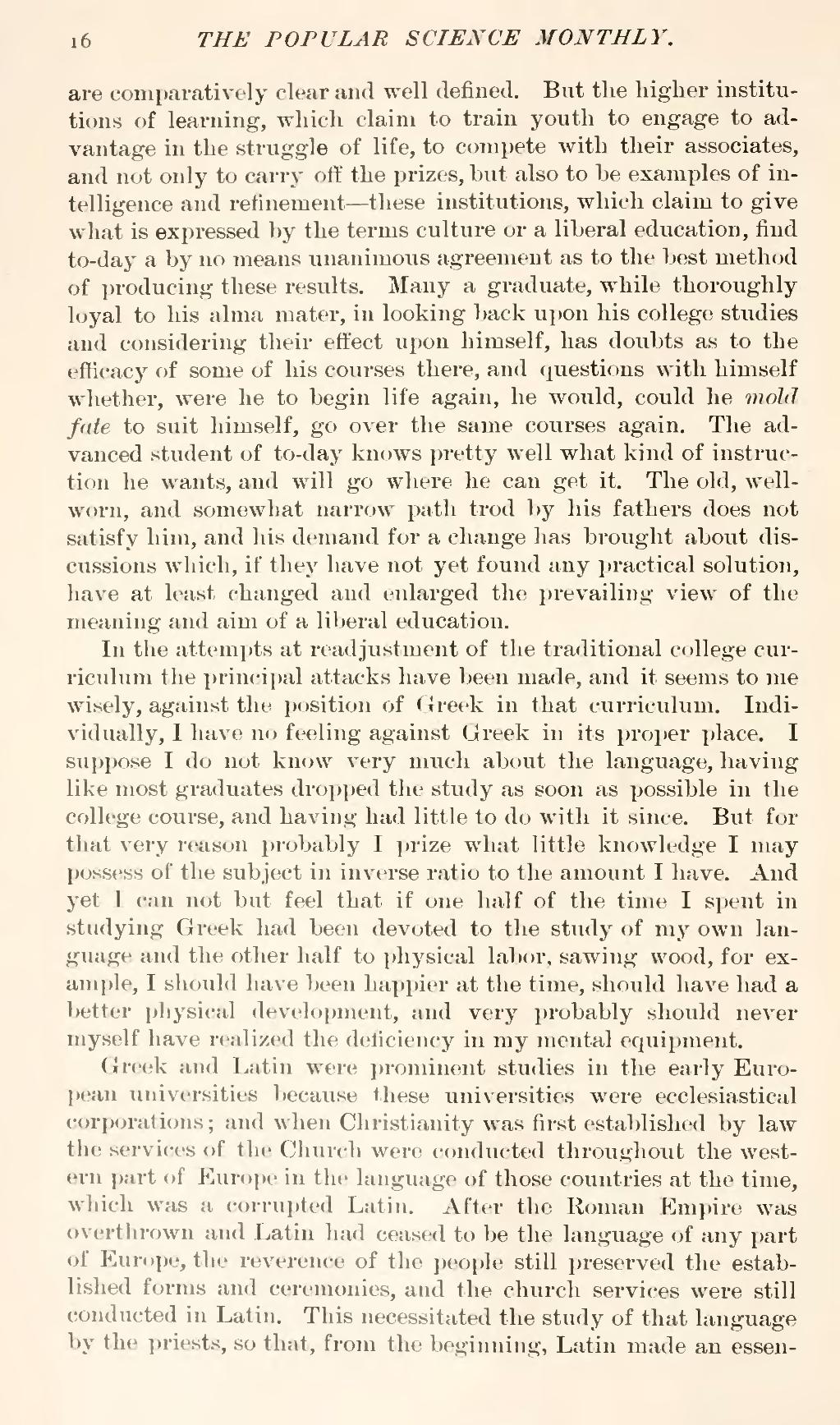are comparatively clear and well defined. But the higher institutions of learning, which claim to train youth to engage to advantage in the struggle of life, to compete with their associates, and not only to carry off the prizes, but also to be examples of intelligence and refinement—these institutions, which claim to give what is expressed by the terms culture or a liberal education, find to-day a by no means unanimous agreement as to the best method of producing these results. Many a graduate, while thoroughly loyal to his alma mater, in looking back upon his college studies and considering their effect upon himself, has doubts as to the efficacy of some of his courses there, and questions with himself whether, were he to begin life again, he would, could he mold fate to suit himself, go over the same courses again. The advanced student of to-day knows pretty well what kind of instruction he wants, and will go where he can get it. The old, well-worn, and somewhat narrow path trod by his fathers does not satisfy him, and his demand for a change has brought about discussions which, if they have not yet found any practical solution, have at least changed and enlarged the prevailing view of the meaning and aim of a liberal education.
In the attempts at readjustment of the traditional college curriculum the principal attacks have been made, and it seems to me wisely, against the position of Greek in that curriculum. Individually, I have no feeling against Greek in its proper place. I suppose I do not know very much about the language, having like most graduates dropped the study as soon as possible in the college course, and having had little to do with it since. But for that very reason probably I prize what little knowledge I may possess of the subject in inverse ratio to the amount I have. And yet I can not but feel that if one half of the time I spent in studying Greek had been devoted to the study of my own language and the other half to physical labor, sawing wood, for example, I should have been happier at the time, should have had a better physical development, and very probably should never myself have realized the deficiency in my mental equipment.
Greek and Latin were prominent studies in the early European universities because these universities were ecclesiastical corporations; and when Christianity was first established by law the services of the Church were conducted throughout the western part of Europe in the language of those countries at the time, which was a corrupted Latin. After the Roman Empire was overthrown and Latin had ceased to be the language of any part of Europe, the reverence of the people still preserved the established forms and ceremonies, and the church services were still conducted in Latin. This necessitated the study of that language by the priests, so that, from the beginning, Latin made an essen-
